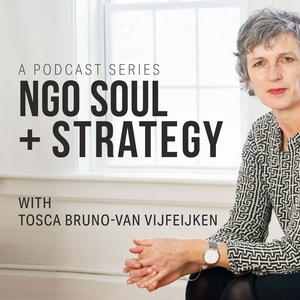087. Coaching Leaders Through An African Lens: Nankhonde Kasonde-Van Den Broek
Western coaching models weren’t built for African leaders. So Nankhonde Kasonde, a Zambian international development as well as a leadership development specialist and certified coach, created something that was.Nankhonde's Bio:Nankhonde Kasonde is a Zambian international development specialist, certified leadership coach, and the founder of Zanga, an African leadership assessment and HR analytics company.As a leadership coach, Nankhonde recognized that African leaders need a coaching framework rooted in African national, regional, and continental values—rather than Western models that do not align with the cultural realities of high-context societies like Zambia.In high-context cultures, such as those in parts of Africa, China, and Japan, communication is often layered and indirect, relying on shared understanding, relationships, and cultural norms. This contrasts with low-context cultures, where communication tends to be more explicit and direct, as seen in Germany, the Netherlands, and the United States (for example). Recognizing this fundamental difference, Nankhonde developed a coaching framework tailored to African leadership, built on five key cultural dimensions: belief, pride, community, loyalty, and respect.Through Zanga, she provides African-grounded leadership coaching, self- and 360-degree assessments, and HR analytics that support talent management and organizational development. Her work aims to reshape leadership development in Africa by integrating culturally relevant coaching methodologies that truly resonate with African leaders.We Discuss:How did Nankhonde come to conclude that the Western approaches to coaching were not sufficiently helpful for African clients or tailored to their needs? In what ways were these coaching approaches not culturally appropriate?How did Nankhonde set out to develop your new coaching framework?What are the components of Nankhonde’s coaching framework for African clients and how it is different from Western or North-founded frameworks?Where does this coaching model diverge from Western ones?Resources:Zanga’s LinkedIn pageNankhonde’s LinkedIn pageZanga’s websiteClick here to subscribe to be alerted when new podcast episodes come out or when Tosca produces other thought leadership pieces.Or email Tosca at
[email protected] if you want to talk about your social sector organization’s needs, challenges, and opportunities.You can find Tosca’s content by following her on her social media channels: LinkedIn Facebook

